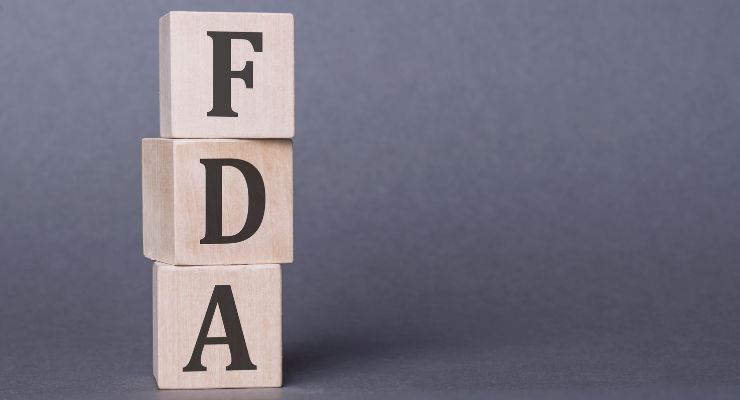Great Expectations for FDA’s Human Foods Program?
By By Sean Moloughney, Editor | 03.01.24
What to expect when you’re expecting a major overhaul of a federal agency in charge of protecting public health ...
As FDA embarks on a journey of realignment and operational efficiency, the dietary supplement industry has many questions. What will it mean for the Office of Dietary Supplement Programs to be housed within a new Office of Chemical Safety, Dietary Supplements, and Innovation? Who is Jim Jones, deputy commissioner of the Human Foods Program (HFP)? What will his priorities be for dietary supplements? Will there be more money in FDA’s budget?
While much remains uncertain, it was clear after the infant formula crisis and FDA failures that business as usual wasn’t cutting it at the agency. A lack of trust in FDA—from the public, the states, judges, and other stakeholders—has reached a boiling point. A series of investigations and reviews led to the proposed restructuring, which, while technically under review at Health and Human Services (HHS), will be pushing forward throughout this year. There are many moving parts so I encourage you to read our features on pages 19 and 59 for more perspective.
A longtime regulator at the Environmental Protection Agency (EPA), Jones said the HFP’s three core priorities will be: managing public risk through nutrition, microbiological food safety, and chemical safety. Surveillance activities will reflect these three concepts. “With our limited resources, we’re trying to focus on where risks are the highest,” Jones said during a recent public meeting.
Another principal aim for the agency is to combat what it believes to be misinformation and disinformation—a challenging but worthwhile goal. Especially today, swatting away viral myths and social media “challenges” can feel like pushing Sisyphus’ boulder uphill for eternity. Just as one dangerous trend fades another emerges.
For industry, even though a majority of consumers take dietary supplements, there’s a common myth that gets repeated and recycled in media and healthcare institutions: that dietary supplements are unregulated. This year will mark 30 years of the Dietary Supplement Health and Education Act (DSHEA). As industry reflects on the landmark law and what the future should or could look like, we will be exploring regulation and perception in more depth.
For now, note that FDA’s main webpage on dietary supplements states: “FDA regulates both finished dietary supplement products and dietary ingredients.” The agency states elsewhere that “FDA regulates dietary supplements under a different set of regulations than those covering ‘conventional’ foods and drug products.” The first four words are there in plain English. “FDA regulates dietary supplements.”
Should we expect FDA to get a bump in its budget? So far Congress has only been able to pass stopgap funding bills for 2024. In an election year, it seems reasonable not to expect much, even though one could argue that Congress’ failure to adequately fund FDA over the years is at least partly responsible for the agency’s inability to carry out its mandate.
While much remains uncertain, it was clear after the infant formula crisis and FDA failures that business as usual wasn’t cutting it at the agency. A lack of trust in FDA—from the public, the states, judges, and other stakeholders—has reached a boiling point. A series of investigations and reviews led to the proposed restructuring, which, while technically under review at Health and Human Services (HHS), will be pushing forward throughout this year. There are many moving parts so I encourage you to read our features on pages 19 and 59 for more perspective.
A longtime regulator at the Environmental Protection Agency (EPA), Jones said the HFP’s three core priorities will be: managing public risk through nutrition, microbiological food safety, and chemical safety. Surveillance activities will reflect these three concepts. “With our limited resources, we’re trying to focus on where risks are the highest,” Jones said during a recent public meeting.
Another principal aim for the agency is to combat what it believes to be misinformation and disinformation—a challenging but worthwhile goal. Especially today, swatting away viral myths and social media “challenges” can feel like pushing Sisyphus’ boulder uphill for eternity. Just as one dangerous trend fades another emerges.
For industry, even though a majority of consumers take dietary supplements, there’s a common myth that gets repeated and recycled in media and healthcare institutions: that dietary supplements are unregulated. This year will mark 30 years of the Dietary Supplement Health and Education Act (DSHEA). As industry reflects on the landmark law and what the future should or could look like, we will be exploring regulation and perception in more depth.
For now, note that FDA’s main webpage on dietary supplements states: “FDA regulates both finished dietary supplement products and dietary ingredients.” The agency states elsewhere that “FDA regulates dietary supplements under a different set of regulations than those covering ‘conventional’ foods and drug products.” The first four words are there in plain English. “FDA regulates dietary supplements.”
Should we expect FDA to get a bump in its budget? So far Congress has only been able to pass stopgap funding bills for 2024. In an election year, it seems reasonable not to expect much, even though one could argue that Congress’ failure to adequately fund FDA over the years is at least partly responsible for the agency’s inability to carry out its mandate.













